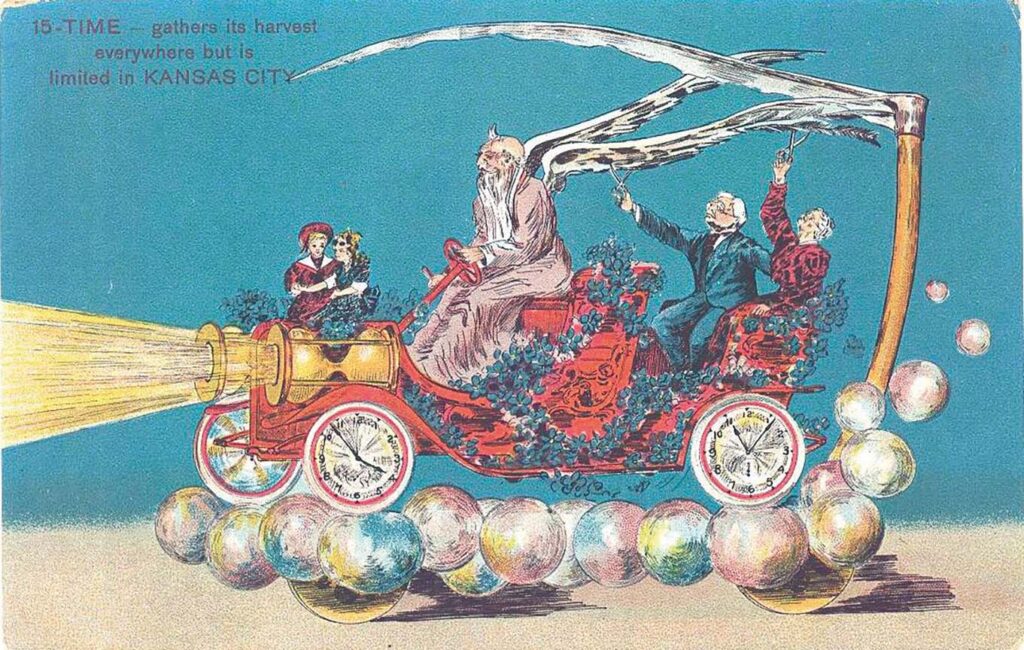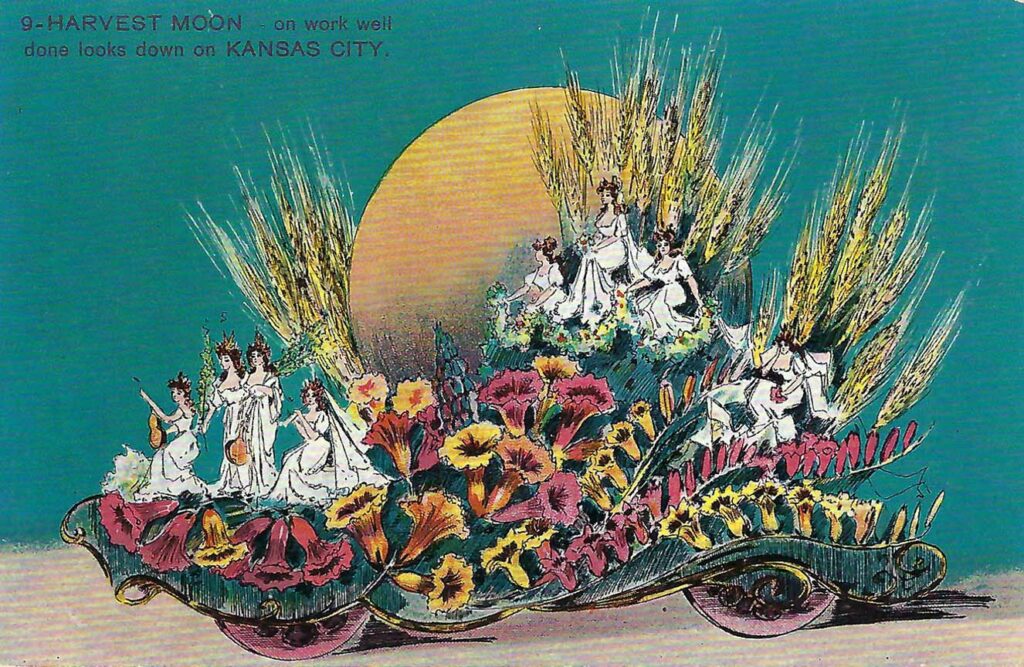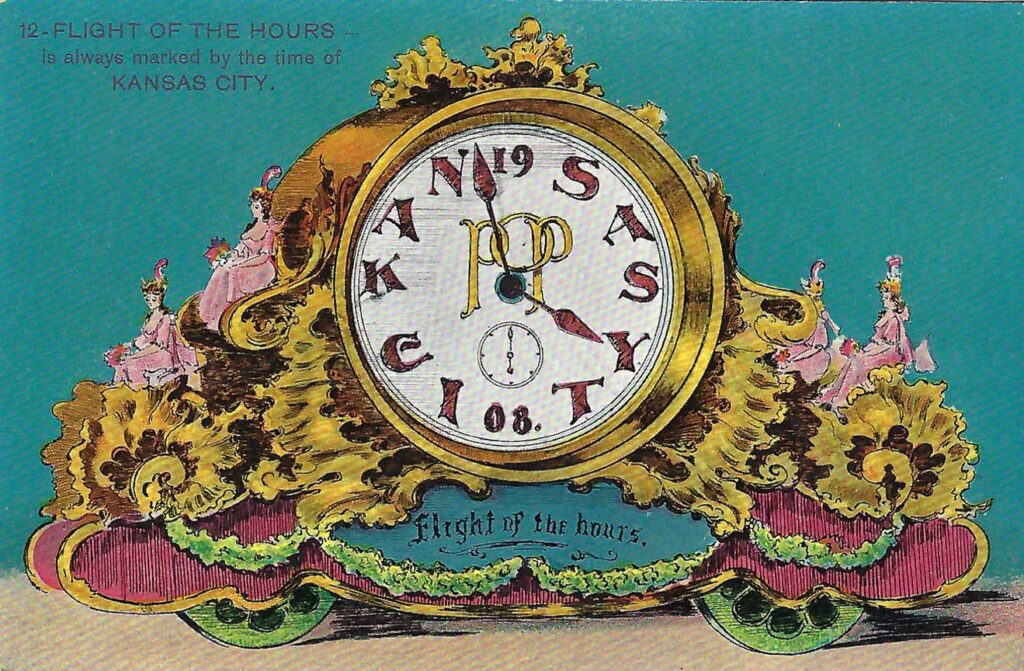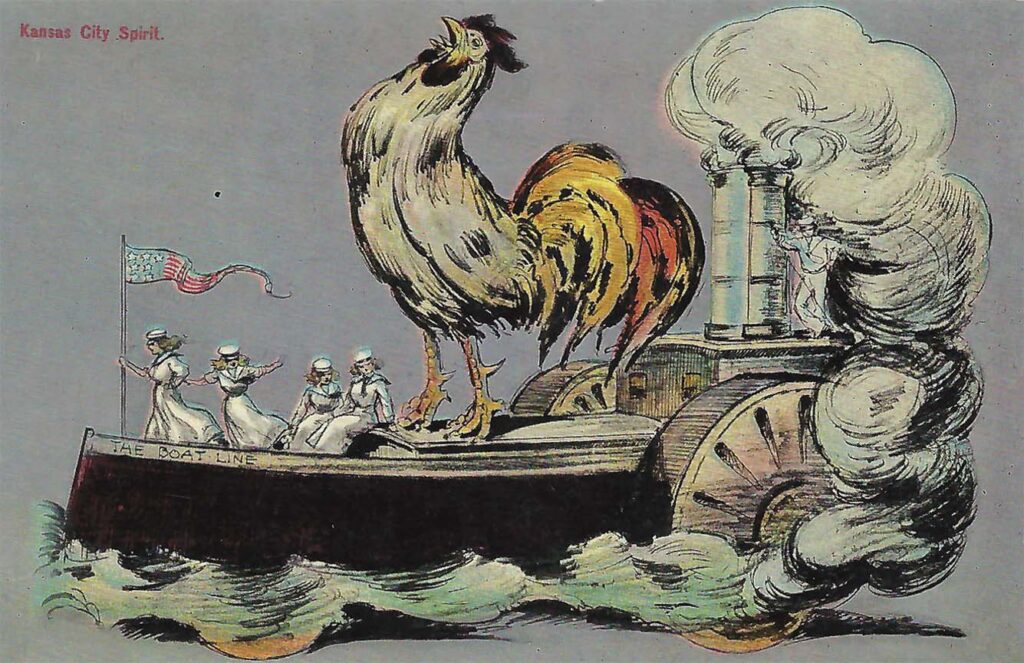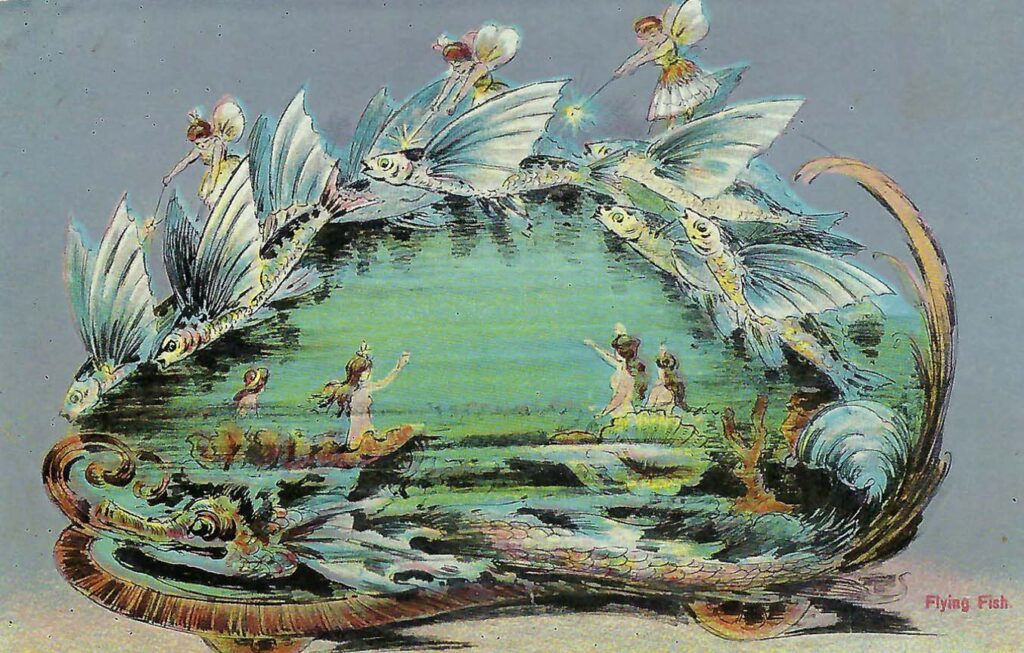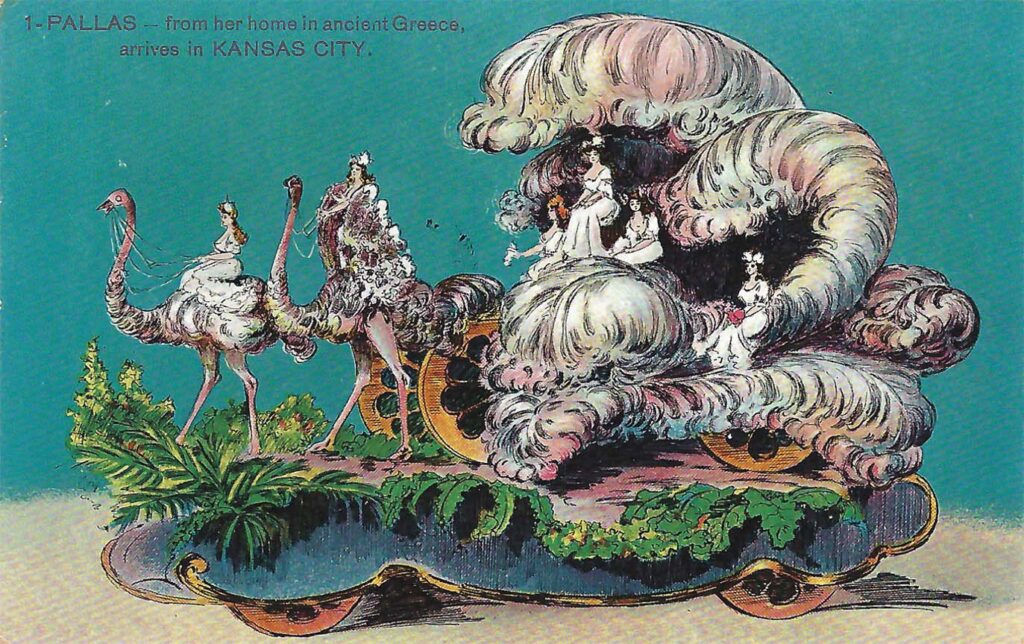
Michael Bushnell
Northeast News
In the late 1880s, Kansas City was awash with excitement that it too would soon have its own Harvest Festival.
The Priests of Pallas, an annual, week-long festival that lasted from 1887 through 1912, was designed to promote Kansas City as the “Athens of the West” and be based loosely on similar celebrations such as Mardi Gras in New Orleans. Their annual masquerade balls were held at a large building at 7th street and Lydia Avenue that held upwards of 6,000 people.The first year a great parade was held, presided over by Pallas Athene from Greek mythology. President Grover Cleveland and his young bride attended the first P.O.P. Festivities. From their second floor suite at the fashionable Coates House Hotel on Broadway, they viewed extravagant floats accompanied by costumed, torch bearing members of the Flambeau Club marching in the parade. The theme for the first two years was “Grecian Myths” and changed annually after those first two years.
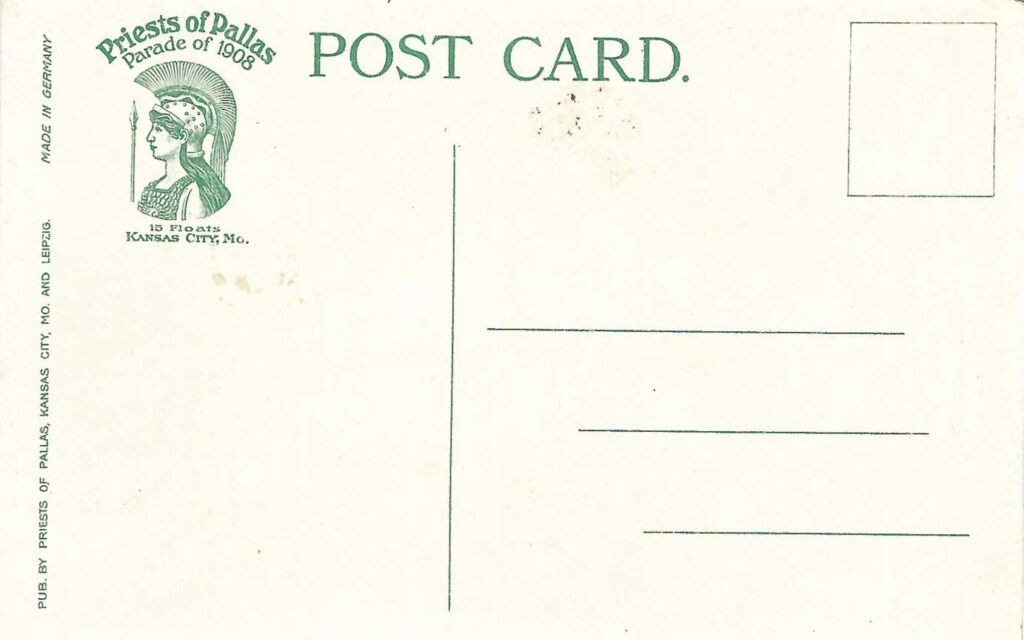
Souvenirs of every shape and size were created to commemorate the festival, including Private Mailing Cards, precursors to hand colored picture postcards. The theme of the 1908 Priests of Pallas parade was “Flight of the Hours,” with each float representing a different time of the day in Kansas City.
The postcard shown is from a 15-card set published specifically for the 1908 celebration. Card No. 15, the last of the set is entitled “Time, gathers its harvest everywhere but is limited in Kansas City.” Souvenir postcard sets were published for the 1908, 1909 and 1910 POP celebrations and sold during the festivities.
Karnival Krewe, organized in 1894 as a fun, companion activity to be held in conjunction with Priests of Pallas. It was discontinued in 1903 after some of the activities became too “boisterous.”
Hotels throughout the city were jammed for the week-long celebration. The festival died out the first time out in 1912 for lack of interest. The wide open style of Kansas City at the time meant a festival in the nature of P.O.P. could be found in most every speakeasy throughout the city. A civic group attempted a resurrection in 1922, but the festival just didn’t garner the interest it once did, especially during the Prohibition years when legal access to alcohol was scarce.
The 2007 reboot didn’t fare much better than the 1922 attempt given it had to compete with modern professional sports franchises and a world-class BBQ competition for attendance numbers. Despite promises of a “stunning range of artistry and exhilarating live entertainment,” people weren’t moved and the new event folded after only a few years.


